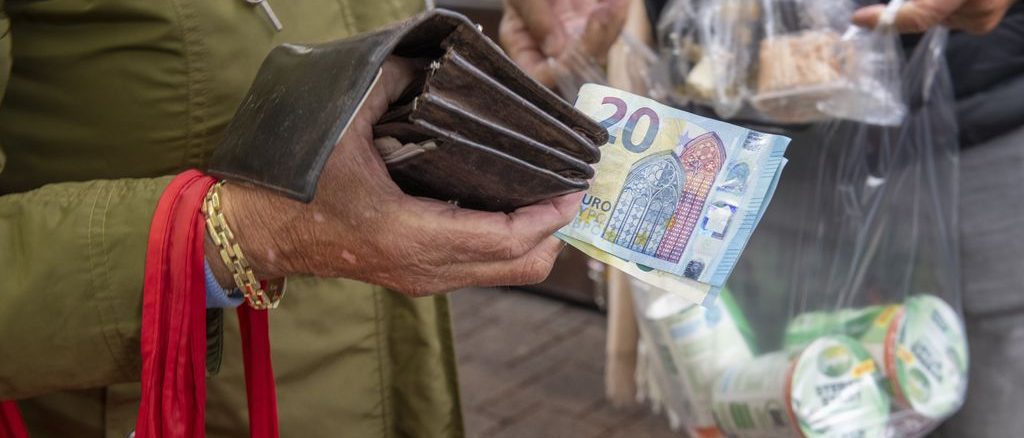
In addition to money from a bank account and cash, anyone who wants to pay in the future can also pay with digital euros deposited in an account at the central bank. That is the proposal that the European Commission is making today.
The use of cash is declining and many residents are increasingly dependent on commercial banks for their payments. The European Commission therefore wants to make an alternative possible. In recent years, a plan has been worked out together with central banks.
What is the digital euro?
It comes down to a digital variant of cash. You can store this digital euro at the central bank via an app on your phone. It can also become a separate account in banking apps that people already have on their phones.
The big difference is that the money in the account of the digital euro continues to work, even if a bank goes bankrupt or there is a major malfunction. The digital euro must also be able to be used in shops – offline – if there is no working internet connection.
There will be a maximum of how many digital euros you can have next to your bank account, which is now a maximum of 3000 euros.
Don’t I already have digital euros in my bank account?
Yes and no. You cannot physically hold the money in your checking and savings account. That’s cash money. It is a number on your bank account, which you can use to pay with your debit card or mobile phone in the store. You can also get the money from the wall through an ATM. That’s cash again.
Book money is issued by a commercial bank. It is guaranteed by the loans that the bank has against it.
Cash is issued by a central bank. Because the use of cash is declining, central banks want to come up with an alternative that they issue themselves. According to the European Commission, this should become the digital euro in the eurozone.
Will cash disappear?
In the Netherlands, the number of payments is declining. Only one in five payments is made with cash. The European Commission emphasizes that the digital euro will be an addition to the payment system and not a replacement for cash. The committee therefore comes up with a proposal that should guarantee the continued existence of cash. Countries in the eurozone must ensure that cash remains sufficiently available and that it is accepted in enough places.
What is this a solution for now?
The digital euro can be a solution for people who cannot easily open a bank account. The European Commission wants the digital euro to also be used for people who are not customers of a bank.
In the background, Europe is also quite dependent on foreign payments, such as American companies such as Mastercard and Visa. Banks also fear digital currencies that large tech companies want to launch, such as Facebook or Google. Our payment traffic could then end up in the hands of listed companies that do not take privacy very seriously.
In Brazil, the central bank developed the Pix payment system for this reason. After just two years, a quarter of payments in the country were already made via this fast and cheap payment method.
What are the arguments against the arrival of the digital euro?
There has been a lot of criticism of the digital euro from the start. It is a solution to a problem that hardly exists in the Netherlands, because many people already have a bank account, is a frequently heard comment. How much need is there for the new payment system?
There are also concerns about privacy, because where paying with cash is now anonymous, a transaction with the digital euro may be registered. The European Commission wants to address this criticism by promising that central banks will not gain insight into the identity of citizens who use the digital euro. If the payment method is used offline, no data is used at all, the commission promises.
But after corona, the digital euro has become fodder for conspiracy theories. It would be devised to kill cash. So there was criticism to Queen Máxima, who publicly expressed her enthusiasm about the arrival of the new payment method.
The discussion about the usefulness and necessity of the digital euro will take some time. The European Parliament will look at and vote on the committee’s proposals. The finance ministers of the euro countries are also still commenting on this. The digital euro will not actually be introduced until 2028 at the earliest.

Be the first to comment